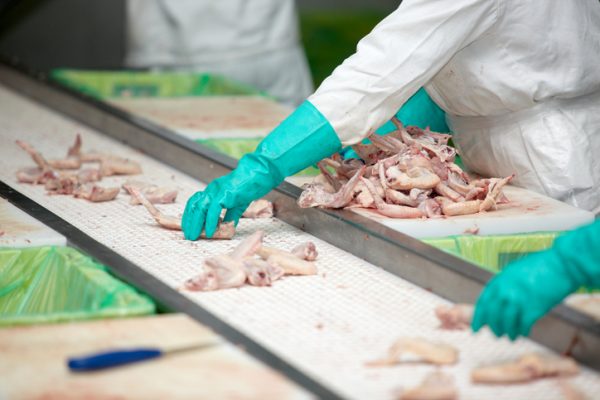

Adapted from DOL Blog
For some workers, a simple trip to the bathroom could result in the loss of a job.
Poultry-processing workers are sometimes disciplined for taking bathroom breaks while at work because there is no one available to fill in for them if they step away from the production line. Some workers have reported that they wear diapers and restrict liquid intake in an effort to avoid using the bathroom.
No one should have to work under these conditions. All workers have a right to a safe workplace, and that includes access to readily available sanitary restroom facilities on the job.
Luckily, there are very clear standards on this issue: the Occupational Safety and Health Administration requires employers to provide all workers with sanitary restrooms and prompt access to the facilities when needed. Further, employers may not impose unreasonable restrictions on employee use of toilet facilities. These standards are intended to ensure that workers do not suffer adverse health effects that can result if toilets are not sanitary or are not available when needed.
Poultry processing is one of the most dangerous industries in the United States, and readily accessible restrooms is only one of many problems that workers in this industry face. OSHA has found workers exposed to serious hazards in poultry processing plants, including exposure to dangerous chemicals and biological hazards, high noise levels,unsafe equipment, and slippery floors.
Poultry workers are twice as likely to suffer serious injuries on the job as other private industry workers and almost seven times more likely to contract a work-related illness. They are also at particularly high risk of developing musculoskeletal disorders from the repetitive motions they perform on the job, with workers twice as likely to have a severe wrist injury and seven times as likely to develop carpal tunnel syndrome than the average U.S. worker.
These injuries and illnesses must stop. To protect workers in poultry plants, OSHA launched regional emphasis programs targeting these facilities throughout the Midwest, Southern, and Southeast states. Their goal is to reduce injuries and illnesses through outreach and enforcement activities, such as training sessions, public service announcements and targeted, comprehensive safety and health inspections.
With UFCW representation, these workers also have better odds because they have a voice on the job, and can speak up when they see unsafe conditions without fear of retribution. We often work with OSHA to ensure our poultry workers continue to work at safe jobs.
Learn more about their work to protect poultry processing workers.


